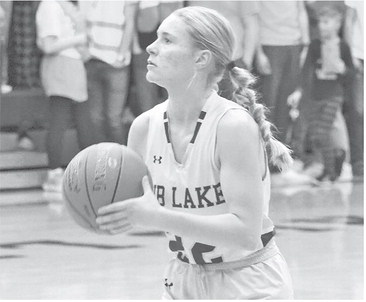Find your adventure: apply for the 2020 elk hunt starting March 1
The Wisconsin Department of Natural Resources will accept applications for the 2020 elk hunting tags March 1 through May 31. This fall marks the third elk hunt in state history.
Once widespread across North America, elk were eliminated from Wisconsin in the 1880s. Thanks to the support of many partners and the backing of Wisconsinites, the herd is back. Elk hunting season is open Oct. 17 through Nov. 15, 2020 and Dec. 10-18. Only Wisconsin residents are eligible to receive an elk tag.
“While we won’t know exact tag numbers until the Natural Resources Board approves the quota in April, we don’t see anything of concern regarding winter effects on the herd,” said Kevin Wallenfang, DNR deer and elk ecologist. “The northern elk population peaked at about 280 last year, and with over 100 breeding age cows in the herd, we’re anticipating continued herd growth and are confident that a hunt will occur. How many tags that are offered will be determined this spring.”
The department is offering an earlier and longer application period to be consistent with other application dates and to be responsive to many hunters who missed last year’s opportunity due to a shorter, 30-day application period.
In 2019, a harvest quota of 10 bulls was established within the original Clam Lake elk range. Five once-in-alifetime bull elk tags were issued to state hunters along with an equal number allocated to the Ojibwa tribes following treaty rights.
The full quota was filled, resulting in the total harvest of 10 bulls.
“It was known before the hunt started that there were a good number of older bulls in the herd, and several of those harvested were 8-10 years old,” Wallenfang said. “Some of the bigger bulls that we know about are still out there.”
More than 60,000 Wisconsinites applied during the first two years of managed elk hunting, showing the appeal of pursuing yet another big game animal in Wisconsin to many hunters.
“It may seem like steep odds to draw a tag, but one person’s chances are just as good as the next person,” Wallenfang said. “All of last year’s hunters, including our first woman elk hunter (Medford’s Lydia Pernsteiner), were thrilled with their experience. Put your name in the hat, and you just might be the next lucky hunter out there in October.”
Elk tag applications can be purchased by Wisconsin residents through the DNR Go Wild license system. Each potential hunter may apply once online at gowild. wi.gov or by visiting a license agent. The application fee is $10. Rocky Mountain Elk Foundation raffle tickets are also $10 each, and there is no limit on the number of raffle tickets an individual may purchase. An elk hunting tag for the winners of the drawing is $49.
For each application, $7 is earmarked for elk management and research in Wisconsin. During the first two hunting seasons, over $400,000 was generated and already is being used for elk habitat enhancement projects as well as for elk research and monitoring.
Hunters who draw a tag will be notified in early June. Prior to obtaining an elk hunting license, all winners are required to participate in a Wisconsin elk hunter education program offered in early September. The class will cover regulations, hunting techniques and more.
The 2020 hunting season is expected to occur only within the northern elk herd. While the state’s central elk herd has grown steadily since reintroduction in 2015, no hunting is expected to occur in 2020.
“A number of potential elk hunters ask if they will be able to find a place to hunt if they draw a tag,” Wallenfang said. “With approximately 70% of the elk range under public ownership and open to hunting, finding a place to hunt has not been a problem for elk hunters. Despite the relative remoteness of the area, there are campgrounds, hotels and restaurants, so everything you need is within easy reach.”
Wisconsin’s elk hunting season will adhere to the following guidelines:
_ Season open from Oct. 17 to Nov. 15, 2020 and Dec. 10-18, 2020.
_ Only bull elk may be harvested.
_ Only Wisconsin residents are eligible to receive an elk tag.
_ An elk tag may be transferred to a Wisconsin resident youth hunter 17 years old or younger or to an eligible Wisconsin resident disabled hunter.
For more information regarding elk in Wisconsin, visit the DNR’s elk webpage (https://dnr.wi.gov/topic/wildlifehabitat/ elk.html). To receive email updates regarding current translocation efforts, visit dnr.wi.gov and click on the email icon near the bottom of the page titled “subscribe for updates for DNR topics.” Then follow the prompts and select the “elk in Wisconsin” and “wildlife projects” distribution lists.




